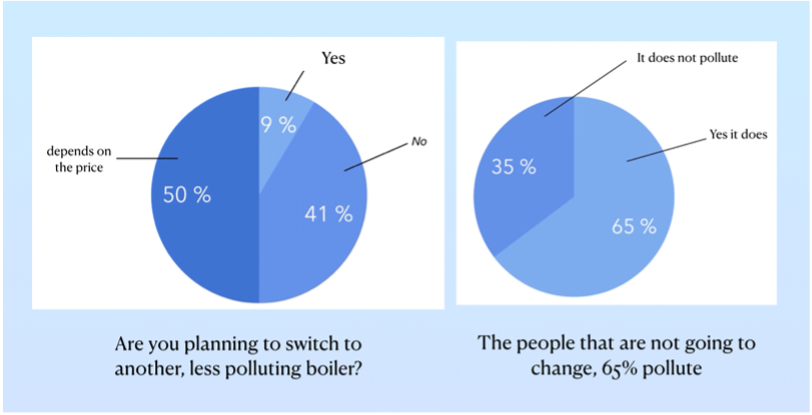Do you know how your boiler affects the environment?
Many people believe that their boiler does not consume, but the survey denies it. Ignorance has led many people to buy boilers that consume more than they think, and that harm both themselves and the environment.
First of all we need to know what is a boiler. A boiler is an device in which the potencial energy of a fuel is transformed into energy. They are used for heating water.
A thing that we need to know is why do the gas boilers contaminate. That is because they are boilers that consume oxygen and cause CO2 levels to rise. They modify the level of humidity in the environment and cause headaches, dizziness, change the humidity of the respiratory tract… For this reason they should not be in closed rooms, or if they are, they must have ventilation to renew the oxygen.
Also we need to know why the condensation boilers not pollute. This because condensing boilers emit less polluting gases, less CO2.

GAS BOILERS ARE THE ONES THAT MOST CONTAMINATE
A statistical survey of 82 people found, that the most commonly used boilers were gas boilers (70%) which pollute. Then we see that there is another 30% of boilers that do not pollute, some of them are: condensing boilers (16%), wood boilers (3%) and others (11%).
DO PEOPLE KNOW HOW MUCH THEIR BOILER CONTAMINATES?

Most of these people have no idea whether their boiler pollutes or not, as this other survey showed. A further survey was made on whether they knew about the pollution of their boiler.
35% of the people asked, thought that their boiler did not pollute and of these, 39% were right, 61% did not know that their boiler was polluting.
There is a lack of knowledge in the field of boilers. There are still many people who do not know if their boiler type is polluting. This could easily be solved with an awareness campaign about the different types of boilers and their consumption.
IS PEOPLE WILLING TO CHANGE THEIR BOILER?
Moving aside, people were also asked about whether they would change their boiler to a less-consumer one. Half of the people state that maybe they could change it, but that this mainly depend on the price. 9% of the people answered that they were definitely going to change it. Sadly, the 41% of them are not going to change it in a near future.

Therefore, as the 50% is willing to change it, if the price was cheaper more people would be receptive about changing their’s to a less pollutant. Most of the people, don’t have the adequate information about their boiler so, they choose it believing it’s the correct one for them.
In relation, with the other statistic one new was made. How many respondents who said they didn’t want to change their boiler have a consumer one? It was the 65% of them who have it.
A CAMPAIGN TO FIGHT THE MISINFORMATION
In conlusion, what we can extract from this analisis, is that there is a misinformation about the boilers, and people mislead which of them pollute.
In regard to the price, the 50% would be willing to change their boilers depending on that cost. This illustrates that the people care more about the price rather than their water heater consumance.
We have thought about an idea in which we can spread a campaign for improving the knowledge of boilers. Our idea consists of a didactive poster in which it will be explained the types of boilers and why they consume. With this information we will be doing a voluntary scape room for all the people who want to learn more and prove their new acquaintances.
For summary, we would say that with the inclusion of a new campaign that alert the consumers of their boleir’s pollution, affordable prices will be there for everyone, and the gases that are expelled from them won’t damage the environment.
References:
https://comunidad-de-madrid.com.es/
https://www.lainformacion.com/asuntos-sociales/calefacciones-contaminan_0_1007599854.html
https://repaexpress.com/noticias/emisiones-de-las-calderas-de-gas/
https://serviciotecnicoferroli.es/residuos-organicos-calefaccion-sostenible/
Made by: Laura Huergo, Jorge de Miguel y Lucía López.


